Profile
Ms Edith Awuah — teacher earning living as cabbie

Though Ms Edith Awuah, a trained teacher was able to achieve her childhood dream of becoming a teacher, little did she know that her cherished profession would be short lived. This compelled her to seek an alternative means of livelihood.
The impeccable way teachers dressed, conducted themselves, and earned the respect from members of the communities where they served, attracted her to this noble profession.
Initially, her hope was to retire as a teacher and enjoy the fruits of her labour. Unfortunately, she had the shock of her life when she returned from China, where she had studied Chinese Language on study leave to discover that her employers had terminated her employment.
She disclosed that the papers for study leave which she had filled and submitted, were not given to the authorities for endorsement.
In times of unexpected challenges in life, it takes a person with perseverance, courage and determination to calm the storms of life and take things easy.
Having known her fate, she made several attempts to enable her to be reinstated, but this could not materialise.
Ms Awuah did not throw in the towel easily as she wrote application letters to private schools to be employed, but she was turned down in all the schools she had applied to.
Initially, she attempted selling African wear but this did not attract patronage as she had anticipated, and was compelled to abandon that venture.
When she conceived another idea of converting, her private car into taxi, she feared that the plan might not be successful.
As fortune would have it, a friend later disclosed to her that he had spent too much on fuel, therefore, he had decided to convert his car into a taxi.
This piece of information brought back the idea she had conceived to convert her private car into taxi, and ever since, she has not regretted the bold decision she took.
After she had acquired the necessary papers to work as a taxi driver at the Atomic Junction Taxi Drivers Union, it was not easy getting the permission to operate with the union.
Ms Awuah said it was initially not easy, but with persuasion, the executives gave her the green light to operate.
The following day, she reported to work at 6.00am and that has been her normal time to commence work.
Operation
Ms Awuah admitted that it was not easy in the commencement of her driving career, but with determination and the spirit of hard work, she was able to withstand the difficulties.
“My colleague drivers did not hesitate to give me the needed support and encouragement. Any time l struggled to enter the main road, they gave me free passage” she said, and indicated that other drivers gave her thumbs- up whenever they identified her.
Details
She said whenever the drivers returned to the station, they were required to register their car numbers to determine when they would load again.
“The job needs patience and tolerance since one will deal with different passengers. You can meet a distressed passenger from home, so you should know how to handle people. Some will hurl insults at you if you do not have change to give them instantly.”
Encouragement
” You will never lack money when you take to driving. Looking at the current population of the country, it will be impossible for the government to provide jobs for each person,” she said.
She has encouraged the youth and the unemployed graduates not to run away from driving as though it was a profession reserved for school drop-outs or for a particular group of people, but rather embrace whatever they could do to earn a decent living.
Ms Awuah said graduates who had made up their minds to work only in the office, were making a serious mistake, since they could do better when they tried their hands on other jobs.
According to her, since people had made it in the informal sector, they should be rest assured that they would also make it, provided they were focused on the job of their choice and asked them to put whatever they had learnt into practice.
She said her siblings were confident that she would succeed. She also disclosed that the cashiers at the banks marveled at the frequency with which she visited the bank to deposit money from the sales she had made.
The former teacher said, if offered the opportunity to return to the classroom and teach, she would turn down the offer.
Ms Awuah’s next target is to build a shop at her house and settle to trade when she becomes tired of driving her taxi.
Training
Ms Awuah attended Peki Training College in the Volta Region and later enrolled at the University of Education, Winneba. She taught at Bator Junior High School (JHS), Denu JHS, Kotobabi Primary School, and finally at the Association International School before she went for further studies in China.
Hobby
She is the seventh of eight siblings and a chorister who sings soprano. She likes banku with okro stew and boiled yam with palava sauce.
Profile
Albert Litela Obidiaba: The artist who wove Ghana’s soul into the King’s Baton
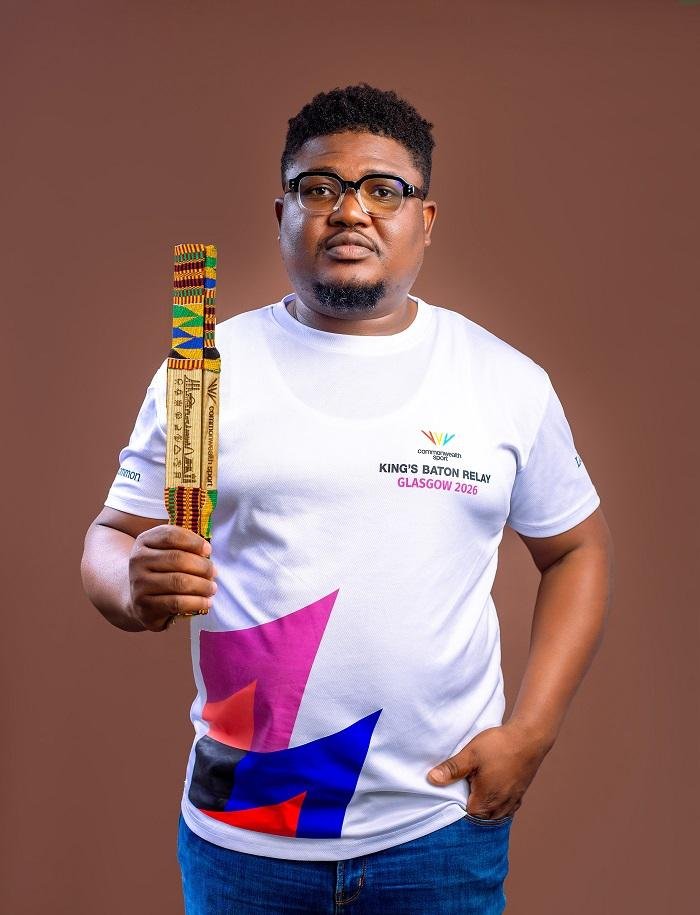
When the world’s eyes turn to the King’s Baton on its global journey, one of Ghana’s most profound artistic stories travels with it. It will be a story of creativity, culture, and national pride crafted by Albert Litela Obidiaba.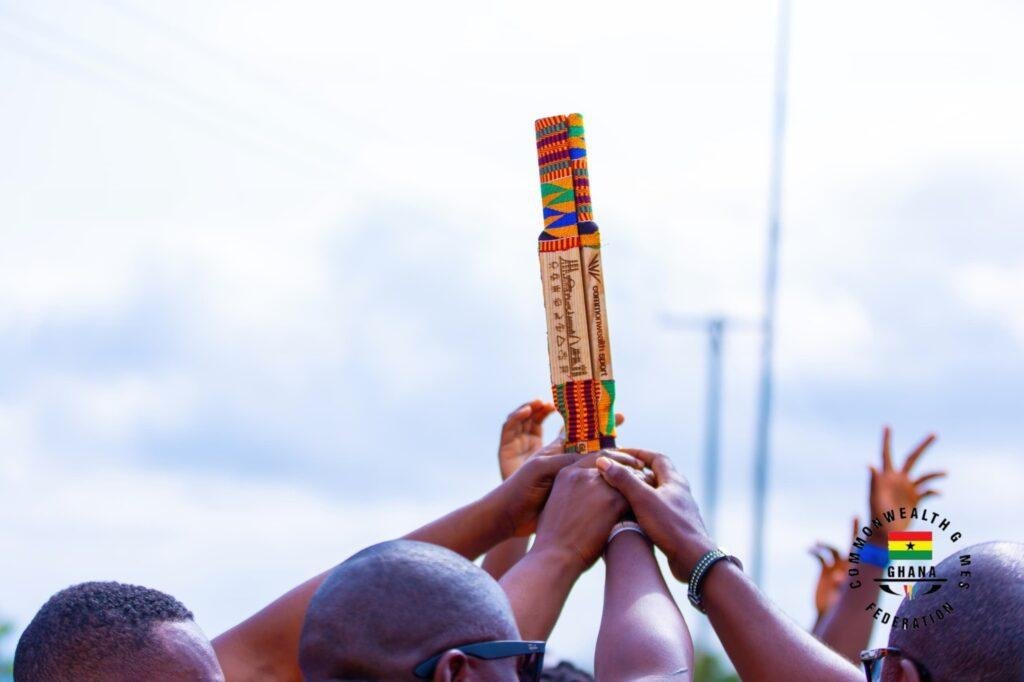
From the quiet town of Old Baika in the Oti Region, Albert’s journey as an artist has always been about telling stories. It is not just through words, but through symbols, textures, and meaning.
“From a young age, I was drawn to the power of art, knowing how colours and textures can capture not just emotion but culture and identity,” he recalls.
Today, his name has become synonymous with innovation rooted in traditional bridge between Ghana’s past and its global creative future.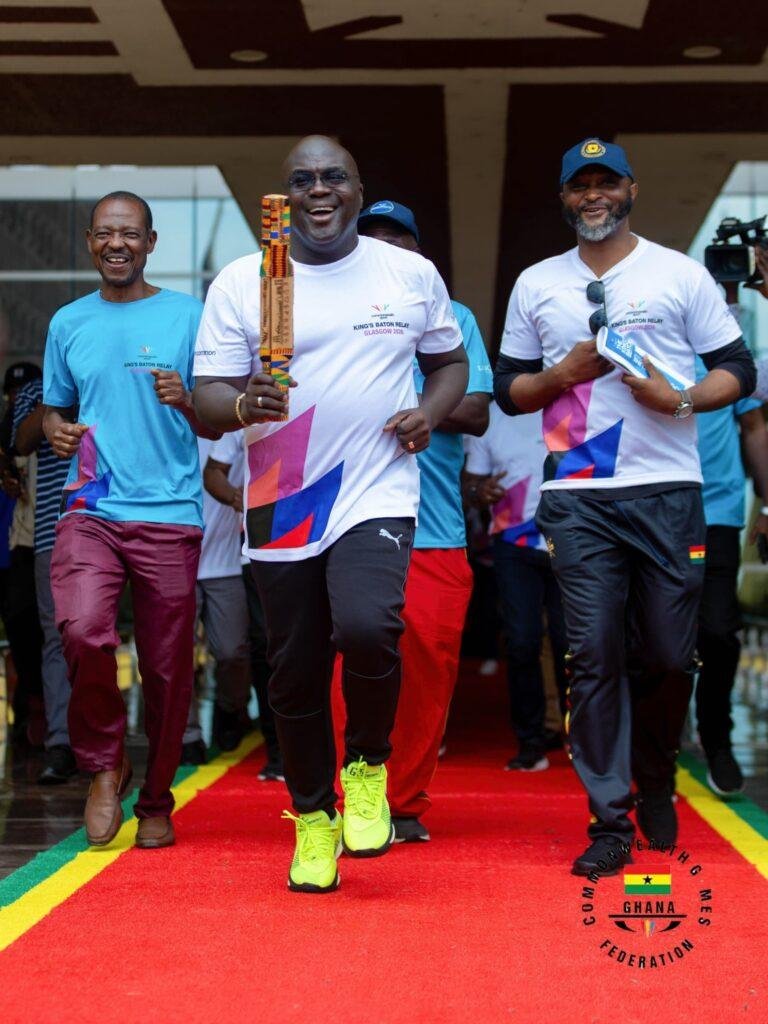
Albert’s love for art was born from curiosity. Surrounded by the vibrancy of Ghanaian culture; the patterns of kente, the stories behind Adinkra symbols, and the textures of daily life, he began sketching and crafting early on.
“Simple things told deep stories,” he says. “That fascinated me.”
As he matured, his art evolved into a personal mission to preserve and reinterpret Ghana’s heritage for a modern audience. His style reflects a seamless blend of culture and contemporary design, each piece a narrative of unity, history, and pride.
“I see art as storytelling through form and symbolism, it should feel rooted in purpose yet speak to today’s world,” he explains.
When the call came to design Ghana’s version of the King’s Baton, Albert saw it as both a national duty and a creative calling.
Recommended by mentors like Mr Charles Osei Asibey, who trusted his talent and understanding of Ghanaian symbolism, he embraced the project wholeheartedly.
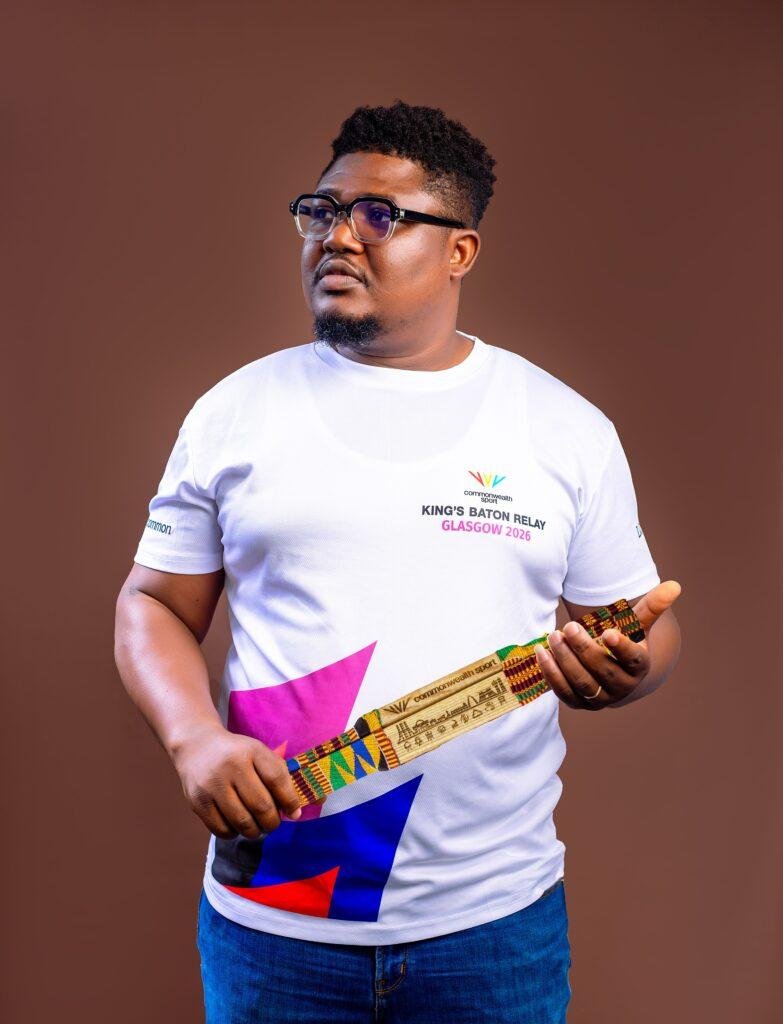
His vision was clear; to create a piece that would embody unity, pride, and the enduring spirit of Ghana.
Drawing from traditional motifs, he integrated textures inspired by kente weaving, representing hard work, continuity, and creativity. The golden tones symbolise strength and dignity, while the contours and natural motifs mirror Ghana’s landscapes and people.
“The King’s Baton had to tell our story of who we are, what we value, and how we see the world, it is more than art, it is identity in motion,” he said.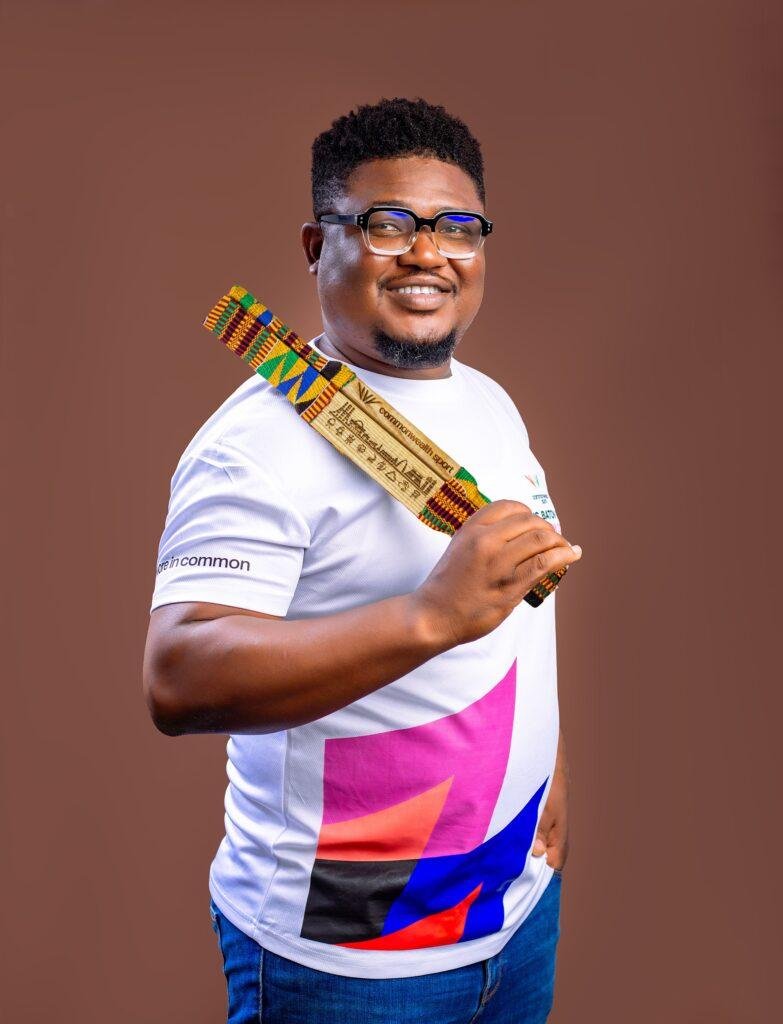
Every etch, every pattern carries meaning. From concept to completion, the entire process took three intense weeks which were filled with research, design sketches, consultation, and collaboration with skilled artisans.
“It was days and nights of work, but a lifetime of meaning,” he says with quiet pride.
Creating a design that represents all of Ghana’s diverse cultures was no small feat. Albert had to balance aesthetics, authenticity, and technology thereby using sustainable wood, carefully treated and certified, to reflect the nation’s commitment to nature and preservation.
“It wasn’t easy finding the right mix,” he admits. “But those challenges pushed me to think deeper. They made the final piece stronger — both artistically and symbolically.”
For Albert, Ghanaian culture is both muse and message. His works echo the values of unity, strength, persistence, and wisdom, drawn from Ghana’s traditions.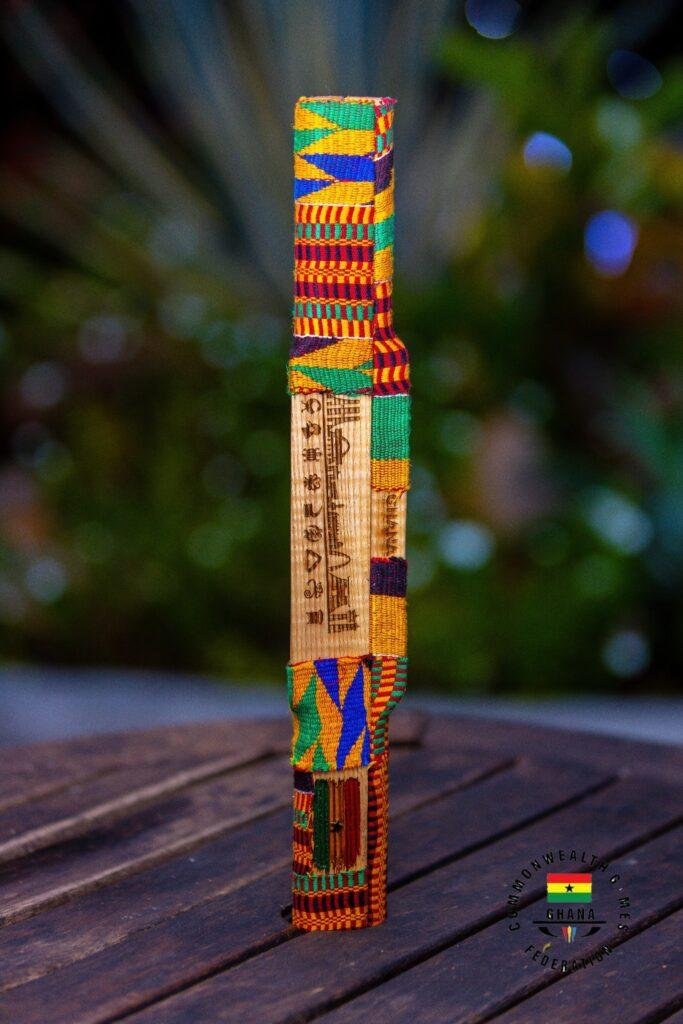
“Art preserves who we are and every line and symbol tells a story of belonging,” he said, and believes art is one of the most powerful tools for building national pride.
Designing the King’s Baton has been a defining moment in his creative journey and that it deepened his appreciation for cultural storytelling. “It taught me that creativity is also a form of service,” he said.
The experience has opened new professional doors, but more importantly, it gave him a renewed sense of purpose making him embrace a call to national duty.
“My soul will be glad even after my days on earth are over,” he said beaming with smiles.
Beyond the King’s Baton, Albert has worked on numerous projects celebrating Ghanaian identity through contemporary art and design. His ongoing works explore symbolism and heritage in new forms which includes blending materials, stories, and styles from across Ghana’s regions.
He is currently preparing projects that continue the conversation the baton began. They are about unity, creativity, and Africa’s evolving artistic voice.
To young artists aspiring to make their mark, Albert’s advice is for them to believe deeply in their craft and that the world is always looking for authenticity “which comes from knowing who you are and where you come from.”
On how he wants to be remembered, he said, “I want to be remembered as an artist who used creativity to celebrate culture and connect people. If my name is remembered as the one who designed Ghana’s version of the King’s Baton, that will be enough, because it means I carried Ghana in my hands, and shared her with the world.”
By Esinam Jemima Kuatsinu
Join our WhatsApp Channel now!
https://whatsapp.com/channel/0029VbBElzjInlqHhl1aTU27
Profile
Survival to service: Margaret Odame Donkor the breast cancer preacher
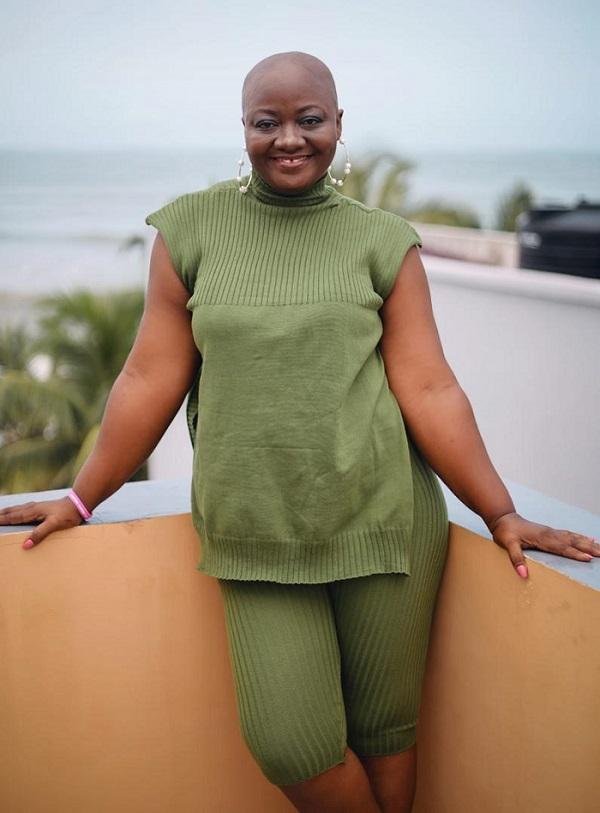
A ‘trotro’ bus heading to Nsawam was filled with the usual sounds from conversations, music, and sometimes a preacher delivering a message.
But when Margaret Odame Donkor rises to speak, she does not preach salvation or sell herbal remedies. Instead, she shares her journey as a breast cancer survivor, urging passengers to examine their breasts regularly, seek medical help early, and never lose hope.
Her pulpit is not a church, but the crowded minibuses of Ghana’s public transport system. Her message is not about repentance, but about survival.
She urges women to check their breasts regularly, encourages men to support their wives during health challenges, and reassures everyone listening that a cancer diagnosis is not the end of life.
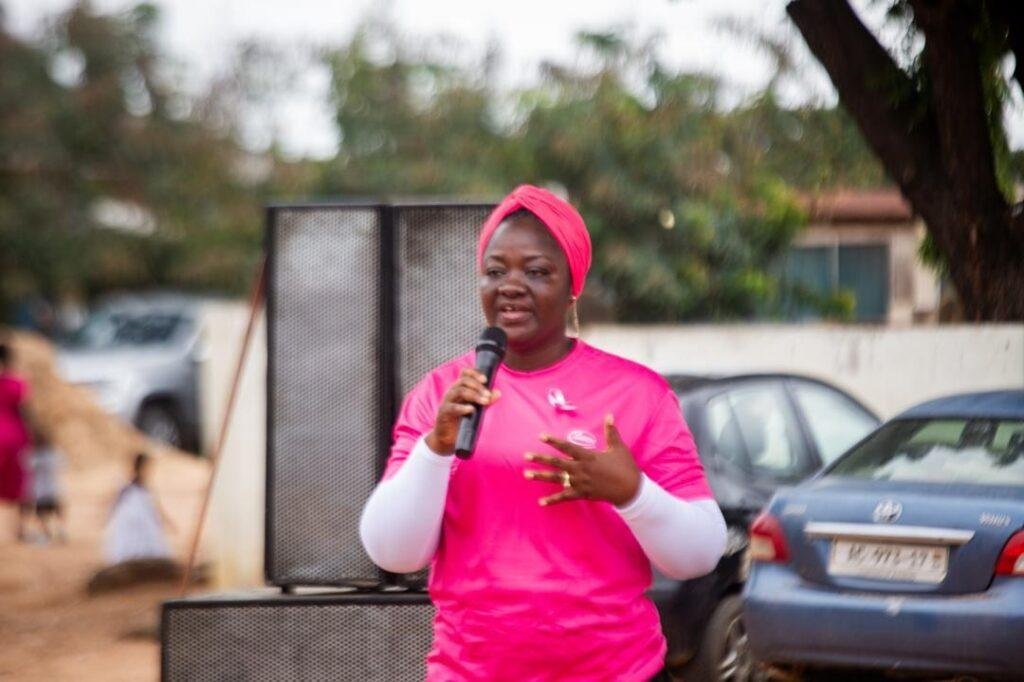
For Margaret, creating awareness is more than a duty-it is a calling born out of personal pain, fear, and triumph.
Her words carried weight because they come from lived experience.
At age 48, Margaret has walked through the valley of fear and pain, battled stage three invasive carcinoma, and emerged not just a survivor but an advocate determined to educate others.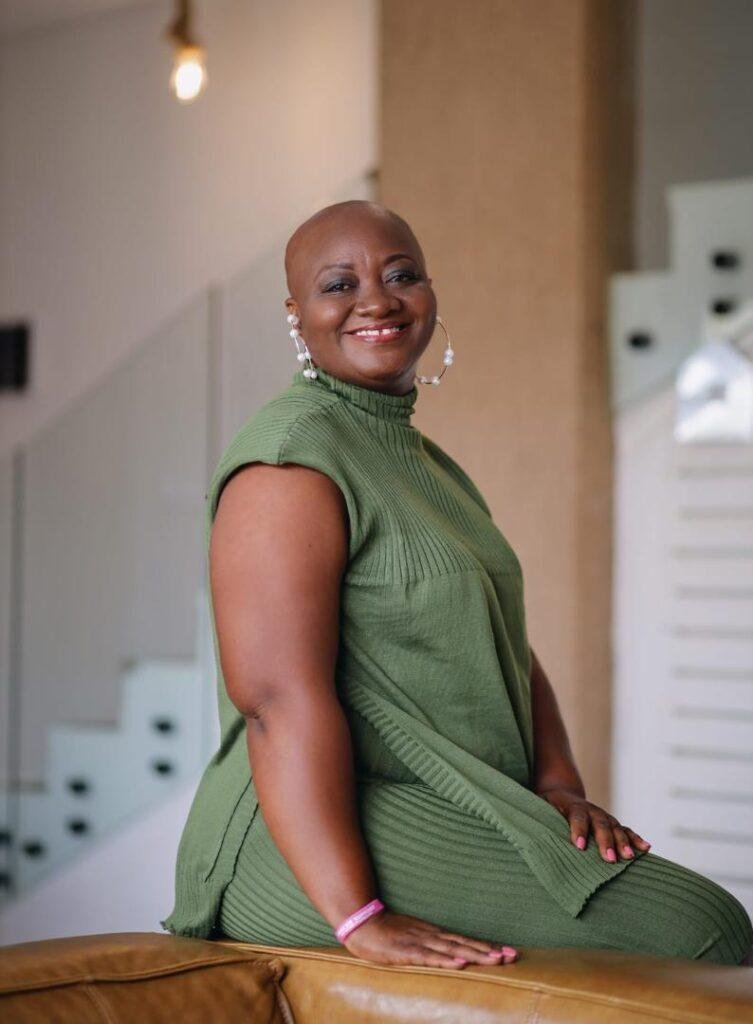
Cancer journey
Margaret’s encounter with breast cancer stretches back decades. At 22, she discovered a lump in her left breast. It was removed and declared benign. Relieved, she skipped regular checks and moved on. Then in 2021, the lump reappeared—this time spreading toward her armpit.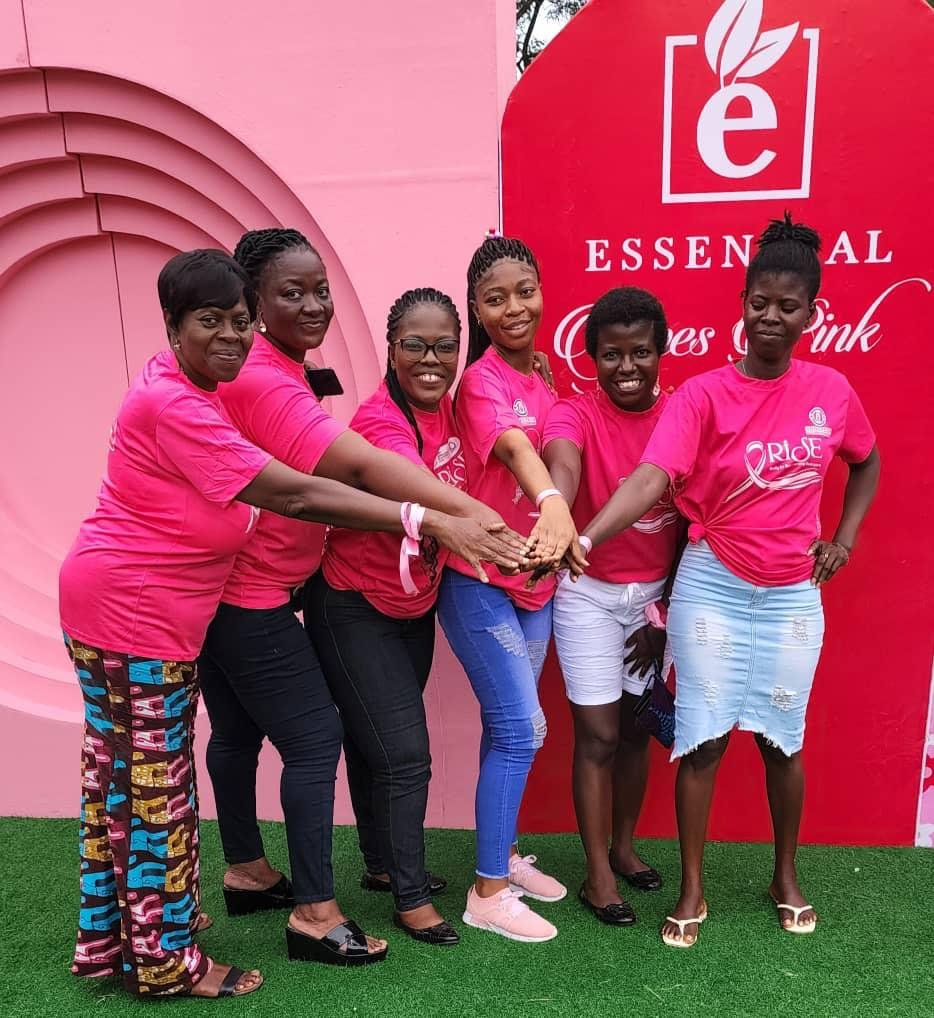
At a church screening in October 2022, doctors detected suspicious lymph nodes. Further tests confirmed her worst fear: stage three invasive carcinoma.
“It wasn’t easy,” she recalls softly. “But my faith in God kept me strong. My husband, children, family, friends, and colleagues formed an army behind me. Their prayers, visits, and encouragement gave me the courage to fight.”
“Be grateful every day because you never know what tomorrow may bring. No one has it all, but with love and support, you can endure,” she stated.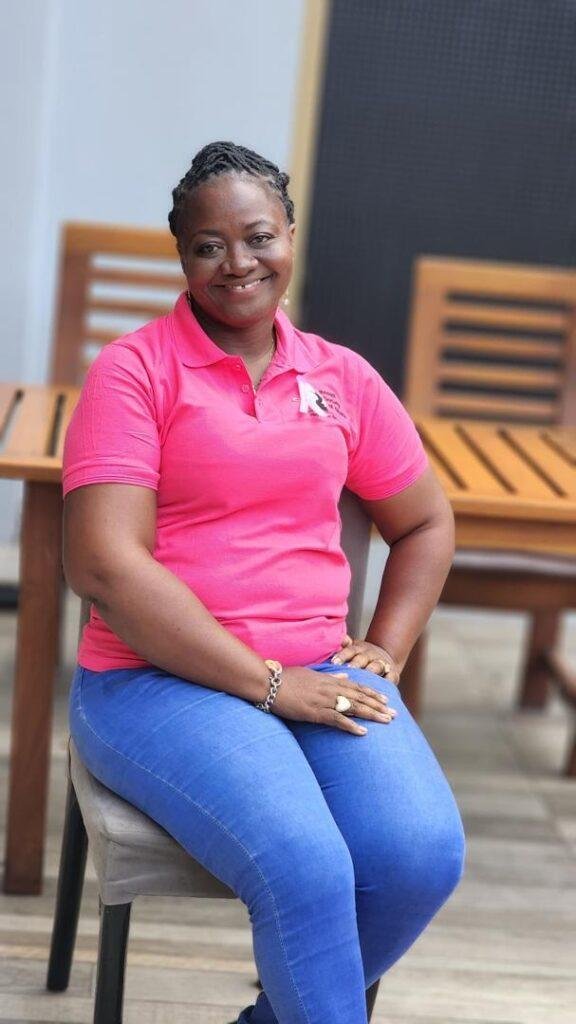
Her greatest fear remains recurrence and not living long enough to see her children graduate and become the people she dreams for them to be.
Before cancer disrupted her life, Margaret had found purpose in interpretation. In 2020, a friend spotted a Judicial Service vacancy and encouraged her to apply. After years of unsuccessful attempts at government jobs, she was reluctant, but she tried once more. This time, she succeeded and was posted to the Eastern Region, her home.
Today, she works at the Nsawam District Court, one of the busiest in the area. On a typical day, she arrives at 7:30am, prepares dockets, and confers with magistrates. She interprets proceedings in Twi, Ga, Hausa, and occasionally Ewe, ensuring that justice was accessible to all.
Her role is demanding. Cross-examinations require her to switch quickly between English and local dialects, while marriages often call for interpreting vows in couples’ preferred languages. Still, she thrives. “The registrars and magistrates I’ve worked with have been amazing. They make the environment very comfortable,” she stated.
Beyond the courtroom, Margaret is also an entrepreneur. In 2017, she founded Nubreed Décor, an events decoration business born from her childhood love for beautifying spaces. She recalls cutting paper decorations as a child and helping her cousin rent out chairs and decorate venues.
Balancing décor with court work was tough, and her health struggles after surgery made it even harder. Radiation left her with persistent rib pain, forcing her to slow down. “Now I hire more hands, which makes business expensive, but it helps me achieve my goals,” she explained.
Her biggest challenge as an entrepreneur remains finance. “The event industry is huge, but I have to work at my own pace and focus on my niche,” she admited.
Cancer changed how Margaret values people and relationships. She learned that those you least expect often become your strongest supporters. She urges families to stand by patients with prayers, encouragement, and financial support, reminding society that a cancer diagnosis is not the end of life.
Her advocacy extends beyond awareness talks. She dreams of establishing a counselling centre for young people and hopes Ghana will expand access to mammograms and radiotherapy centres. “Every patient deserves a chance at survival,” she said firmly.
She urged the youth to live peacefully and be their brother’s keeper, learn to be content and rely on God.
To women, she asserted that, “love yourselves and make breast checks routine while calling on Ghanaians to be open-minded, avoid being judgmental, and show love.
By Esinam Jemima Kuatsinu

 Profile6 days ago
Profile6 days agoAlbert Litela Obidiaba: The artist who wove Ghana’s soul into the King’s Baton

 News6 days ago
News6 days agoDaddy Lumba’s wife, children run to court to injunct December 6 funeral arrangements

 News1 week ago
News1 week agoPresident Mahama to meet Auditor-General, Chief Justice and Attorney-General over misuse of public funds






